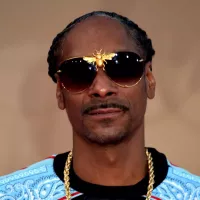Curaçao is a constituent island country within the Kingdom of the Netherlands, situated in the southern Caribbean Sea. It lies approximately 65 km north of Venezuela and 80 km southeast of Aruba. The country consists of the main island of Curaçao and the smaller, uninhabited island of Klein Curaçao.
1905: First published work in Papiamentu
In 1905, the first published work in Papiamentu was a poem by Joseph Sickman Corsen entitled Atardi, published in the La Cruz newspaper.
1911: Punda tramway rebuilt
In 1911, the Punda tramway was rebuilt, regauged to metre gauge, and the horse-drawn trams were replaced by petrol engined ones.
1914: Oil Discovery in Venezuela
In 1914, the discovery of oil in Mene Grande in the Venezuelan Maracaibo Basin dramatically changed Curaçao's economy. Shell and Exxon held drilling concessions in Venezuela, ensuring a constant supply of crude oil to refineries in Aruba and Curaçao.
1914: Oil Discovery Transforms Curaçao
In 1914, the discovery of oil in the Maracaibo Basin significantly altered Curaçao's economy, turning it into a major refinery location.
1920: Punda line closed
In 1920, the Punda tramway line closed.
1925: Curaçao divided into districts
In 1925, Curaçao was divided into the two outer districts of Bandabou and Bandariba and the city district of Willemstad.
1926: White-Tailed Deer Protected
Since 1926, the white-tailed deer has been a protected species on Curaçao. An estimated 200 live on Curaçao.
1929: Attack by Venezuelan Rebels
In 1929, Curaçao was attacked by Venezuelan rebel commander Rafael Simón Urbina, who captured the fort with 250 soldiers and plundered weapons, ammunition, and the island's treasury. They also captured the Governor, Leonardus Albertus Fruytier, and took him to Venezuela on a stolen American ship, Maracaibo.
1936: Schottegat Oil Fire
In 1936, a fire erupted in Schottegat harbor when a burning bale of cotton from the MS Colombia ignited oil on the water. The fire took days to control, prompting evacuations, but caused no casualties.
1939: Current Queen Emma Bridge installed
The current Queen Emma Bridge was installed in 1939. Locals often refer to it as "Our Swinging Old Lady".
1940: British Occupation of Curaçao
In 1940, before the invasion of the Netherlands by Germany, the British occupied Curaçao during the Second World War to secure the island's fuel supply for the Allied forces.
1941: US Troops Occupy Curaçao
In 1941, US troops occupied Curaçao and constructed the military airport "Hato" to defend against potential Axis attacks. The United States was concerned over the potential threat of a German invasion of the continental US launched with the aid of German settlers in South America.
August 1942: German Submarine Attacks
In August 1942, German submarines returned to Curaçao and attacked a tanker before being driven away by a Dutch shore battery. The United States Navy then established the Fourth Fleet to counter enemy naval operations in the Caribbean and South Atlantic. The United States Army also sent aircraft and personnel to help protect the oil refineries and bolster the Venezuelan Air Force.
1954: Part of Netherlands Antilles
In 1954, Curaçao became part of the Netherlands Antilles, having previously been part of the Curaçao and Dependencies colony from 1815.
1954: Hurricane Hazel
In 1954, Curaçao was affected by Hurricane Hazel.
1957: Construction of Van der Valk Plaza Curaçao
In 1957, the hotel Van der Valk Plaza Curaçao was built on top of the Waterfort.
1961: Hurricane Anna
In 1961, Curaçao was affected by Hurricane Anna.
1969: Tropical Storm Francelia
In 1969, Curaçao was directly affected by pre-hurricane tropical storm Francelia.
1969: Riots in Curaçao
In 1969, discontent over Curaçao's relationship with the Netherlands, racial discrimination, and unemployment led to riots. A state of emergency was declared after rioters set fire to Willemstad. Dutch Navy marines quelled the rebellion, which resulted in two deaths, numerous injuries and infrastructural damage. The Dutch government then introduced reforms to grant Afro-Curaçaoans greater political and economic influence and increased the prominence of the local Papiamentu language.
1971: Tropical Storms Edith and Irene
In 1971, Curaçao was directly affected by pre-hurricane tropical storms Edith and Irene.
1972: Death of Leonardus Albertus Fruytier
In 1972, Leonardus Albertus Fruytier, the former governor of Curaçao who was kidnapped in 1929, passed away.
1974: Queen Juliana Bridge opening
The Queen Juliana Bridge opened in 1974 allowing the Queen Emma Bridge to become a pedestrian-only bridge.
1975: Shell Refinery Losses
From 1975, Shell's refinery on Curaçao operated with significant losses.
1978: Tropical Storms Cora and Greta
In 1978, Curaçao was directly affected by pre-hurricane tropical storms Cora and Greta.
1979: Continued Shell Refinery Losses
In 1979, Shell's refinery on Curaçao continued to operate with significant losses since 1975.
1982: Continued Shell Refinery Losses
From 1982, Shell's refinery on Curaçao continued to operate with significant losses.
1985: Shell Ends Activities on Curaçao
In 1985, after 70 years, Royal Dutch Shell decided to end its activities on Curaçao due to persistent losses, global overproduction, stronger competition, and low market expectations. The economy had been stagnant, and the tourism from Venezuela collapsed after the devaluation of the bolivar.
1988: Tropical Storm Joan
In 1988, Curaçao was directly affected by pre-hurricane tropical storm Joan.
1992: New public education law introduced
In 1992, a new public education law was introduced, making primary education compulsory at age six for six years, followed by four years of secondary education.
1993: Papiamentu introduced as a language of primary school education
In 1993, Papiamentu was introduced as a language of primary school education in Curaçao.
1996: Tropical Storm Cesar
In 1996, Curaçao was directly affected by pre-hurricane tropical storm Cesar.
1997: End of Military Conscription
Since 1997, there has been no military conscription on Suffisant Naval Base, but a form of civil conscription has replaced it, compelling underprivileged young Antilleans to undertake professional training.
1999: USAF Operations
Until 1999, the USAF operated a small fleet of F-16 fighter aircraft from the Forward Operating Location.
2000: Jewish population on the island
As of the year 2000, there were approximately 300 Jewish people living on the island of Curaçao.
April 2002: Tax Information Exchange Agreement signed
In April 2002, the Tax Information Exchange Agreement was signed in Washington, D.C. between the U.S. and the Kingdom of the Netherlands, including Curaçao.
2004: Willemstad Little League Baseball team won the world title
In 2004, the Little League Baseball team from Willemstad, Curaçao, won the world title against the United States champion from Thousand Oaks, California. Jurickson Profar and Jonathan Schoop were part of the Willemstad lineup.
November 2006: Delay of Country Status
On 28 November 2006, the island council rejected a clarification memorandum on the process, delaying the change to becoming a country within the Kingdom of the Netherlands.
July 2007: Postponement of Country Status
On 1 July 2007, Curaçao's planned transition to becoming a country within the Kingdom of the Netherlands was delayed due to rejection of a clarification memorandum by the island council. A new island council ratified the agreement on 9 July 2007.
2007: Hurricane Felix
In 2007, Curaçao was affected by Hurricane Felix.
2007: Royal Netherlands Navy Air Base Closure
Until 2007, the site on the west side of Curaçao International Airport was a Royal Netherlands Navy air base which operated for 55 years with a wide variety of aircraft. After the political decision to sell off all Orions, the air base was not needed anymore.
December 2008: Rescheduling of Country Status
On 15 December 2008, Curaçao was again scheduled to become a separate country within the Kingdom of the Netherlands.
2008: Hurricane Omar
In 2008, Curaçao was affected by Hurricane Omar.
2008: Pabao Little League All-Stars won their country's eighth straight championship
In 2008, Curaçao's Pabao Little League All-Stars won their country's eighth straight championship at the Little League World Series
May 2009: Referendum on Country Status
On 15 May 2009, a non-binding referendum on the move was held in Curaçao, with 52% of voters supporting it.
2009: Opening of Renaissance Curaçao Resort and Casino
In 2009, the Renaissance Curaçao Resort and Casino opened next to the Rif Fort.
October 2010: Dissolution of Netherlands Antilles
On 10 October 2010, the Netherlands Antilles were dissolved, and Curaçao became a country within the Kingdom of the Netherlands. Gerrit Schotte became Curaçao's first prime minister.
2010: Autonomy Achieved
In 2010, Curaçao achieved autonomy as a country within the Kingdom of the Netherlands.
2010: Hurricane Tomas
In 2010, Curaçao was directly affected by Hurricane Tomas as a tropical storm, dropping as much as 265 mm of rain on the island, nearly half its annual precipitation in a single day. The flooding caused by Hurricane Tomas killed two people and caused over NAƒ50 million in damage.
2010: Dissolution of the Netherlands Antilles
In 2010, the Netherlands Antilles were dissolved, and Curaçao achieved autonomy as a country within the Kingdom of the Netherlands.
2010: Documentary film Boys of Summer
In 2010, the documentary film Boys of Summer details Curaçao's Pabao Little League All-Stars winning their country's eighth straight championship at the 2008 Little League World Series.
2011: Religious breakdown of the population
The religious breakdown of the population of Curaçao, according to a 2011 estimate, shows a diverse religious landscape.
December 2012: Daniel Hodge Becomes Prime Minister
On 31 December 2012, Daniel Hodge became the third prime minister of Curaçao after the 2012 elections.
2012: NuCuraçao opened wind farms in Tera Kora and Playa Kanoa
In 2012, the power generation company NuCuraçao opened wind farms in Tera Kora and Playa Kanoa.
June 2013: Ivar Asjes Becomes Prime Minister
On 7 June 2013, a new cabinet under the leadership of Ivar Asjes was sworn in as Curaçao's government.
2013: Cruise ship tourism growth and airport passenger increase
In 2013, Curaçao experienced significant growth in cruise ship tourism, welcoming 610,186 cruise passengers, a 41.4% increase from the previous year. Hato International Airport received 1,772,501 passengers.
2013: Curaçao participated in the CARIFTA Games
In 2013, Curaçao participated in the CARIFTA Games. Kevin Philbert placed third in the under-20 male Long Jump and Vanessa Philbert stood second the under-17 female 1,500 metres.
June 2014: Curaçao deemed to have an Inter-Governmental Agreement with the United States
In June 2014, Curaçao was deemed to have an Inter-Governmental Agreement (IGA) with the United States of America with respect to the "Foreign Account Tax Compliance Act".
2015: NuCuraçao expanded in Tera Kora
In 2015, NuCuraçao expanded its wind farm operations in Tera Kora.
2016: Unemployment rate was 13.3%
In 2016, a Labour Force Survey indicated that the unemployment rate in Curaçao was 13.3%, with an employment rate of 70.4% for residents ages 15–64.
2016: Decreased exports and increased domestic demand led to economic stagnation
In 2016, reduced foreign demand due to unrest and political uncertainty in Venezuela caused decreased exports and increased domestic demand in Curaçao, leading to economic stagnation. Expansions occurred in construction, financial intermediation, and utilities sectors despite contractions in others.
2016: Tax Information Exchange Agreement taking effect
In 2016, the Tax Information Exchange Agreement that was updated with respect to Curaçao in 2014, took effect.
June 2017: Curaçao named Top Cruise Destination in the Southern Caribbean
In June 2017, Curaçao was named the Top Cruise Destination in the Southern Caribbean by Cruise Critic, based on positive feedback from cruise passengers about Willemstad's downtown area, food, and shopping.
July 2017: Prime Minister Seeks More Cooperation
In July 2017, Curaçaoan Prime Minister Eugene Rhuggenaath expressed a desire for Curaçao to take full responsibility for its affairs but requested increased cooperation and assistance from the Netherlands, including innovative approaches to boost Curaçao's success and standard of living.
2017: Curaçao national football team won the Caribbean Cup
In 2017, the Curaçao national football team won the Caribbean Cup by defeating Jamaica in the final, qualifying for the 2017 CONCACAF Gold Cup.
2018: Hato International Airport to transform into a regional hub
By 2018, Hato International Airport aimed to transform into a regional hub with capital investments totaling US$48 million.
2018: High Carbon Dioxide Emissions
In 2018, average carbon dioxide emissions per person on Curaçao were 52 tonnes, the second highest in the world, according to the Emissions Database for Global Atmospheric Research.
January 2019: Population Estimate
In January 2019, the estimated population of Curaçao was 158,665, with an area of 444 square kilometers. Willemstad served as its capital.
2019: PDVSA's lease on the island's oil refinery expired
In 2019, Venezuelan state oil company PDVSA's lease on Curaçao's oil refinery expired. The facility, which employs 1,000 people, refines oil from Venezuela for export to the United States and Asia.
June 2020: Civil Servant Riot
On 24 June 2020, during the COVID-19 pandemic, civil servants and waste collectors protested austerity measures, resulting in a riot that was quelled by police with tear gas. Willemstad's city centre was looted, and a curfew was imposed. 48 people were arrested, and the city districts of Punda and Otrobanda were placed under lockdown for the night.
2020: Campo Alegre closed after 71 years
In 2020, Campo Alegre, Curaçao's largest open-air brothel, closed after 71 years of operation, leading to the proposal of various scenarios for the site's future use.
2022: Curacao has 92 men for every 100 women.
According to the 2022 data from the CIA, Curacao has a total of only 92 men for every 100 women.
2023: Languages most used at home
According to the 2023 census by language most used at home by Curaçao's population; 78% speak Papiamentu, 8.4% speak Spanish, 7.9% speak Dutch, 3.8% speak English and 2% speak other languages.
2023: Curaçao government purchased the Campo Alegre property
In 2023, the Curaçao government purchased the Campo Alegre property to have more control over its future use.
2024: Government evaluating scenarios to ensure benefits to the economy and social landscape
As of 2024, the government of Curaçao is evaluating scenarios for the future use of the Campo Alegre property to ensure that the chosen path benefits the local economy and social landscape.
July 2025: Netherlands Antillean guilder will be withdrawn as legal tender
In July 2025, the Netherlands Antillean guilder will be withdrawn as legal tender in Curaçao, with the Caribbean guilder remaining as the official currency.
Mentioned in this timeline
California is a U S state on the Pacific Coast...
Puerto Rico is a self-governing Caribbean archipelago and island that...
Venezuela officially the Bolivarian Republic of Venezuela is a country...
Colombia officially the Republic of Colombia is a country located...
The Dominican Republic is located on the eastern five-eighths of...

Football is a family of team sports primarily involving kicking...
Trending

Luke Kennard is a professional basketball player currently playing for the Memphis Grizzlies in the NBA He played college basketball...

3 months ago Al Horford's Game Schedule Determined; Resting Against Grizzlies, Playing Clippers Tomorrow

3 months ago Warriors' Commitment Questioned After Loss; Green, Butler Criticize Teammates; Curry's Reaction?

7 months ago Seth Curry Hints at Warriors Reunion, Talks Free Agency, Simmons Attracts Interest.

10 months ago Ben Affleck Hilariously Teases Matt Damon's Shirtless 'Odyssey' Photo and Physique.

Cordozar Calvin Broadus Jr known as Snoop Dogg is a highly influential American rapper record producer and actor from the...
Popular

Kid Rock born Robert James Ritchie is an American musician...

Melania Trump a Slovenian-American former model has served as First...
The Winter Olympic Games a major international multi-sport event held...

XXXTentacion born Jahseh Dwayne Ricardo Onfroy was a controversial yet...

Thomas Douglas Homan is an American law enforcement officer who...

Instagram is a photo and video-sharing social networking service owned...